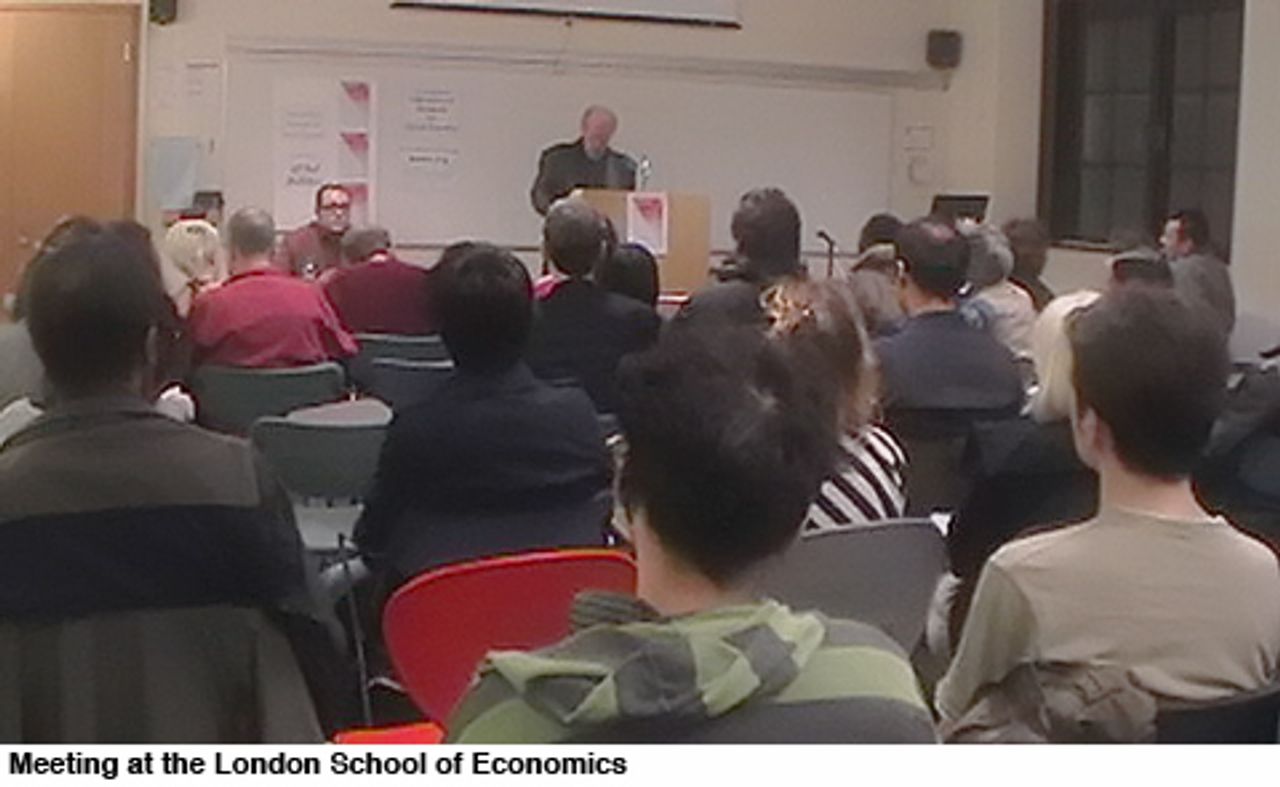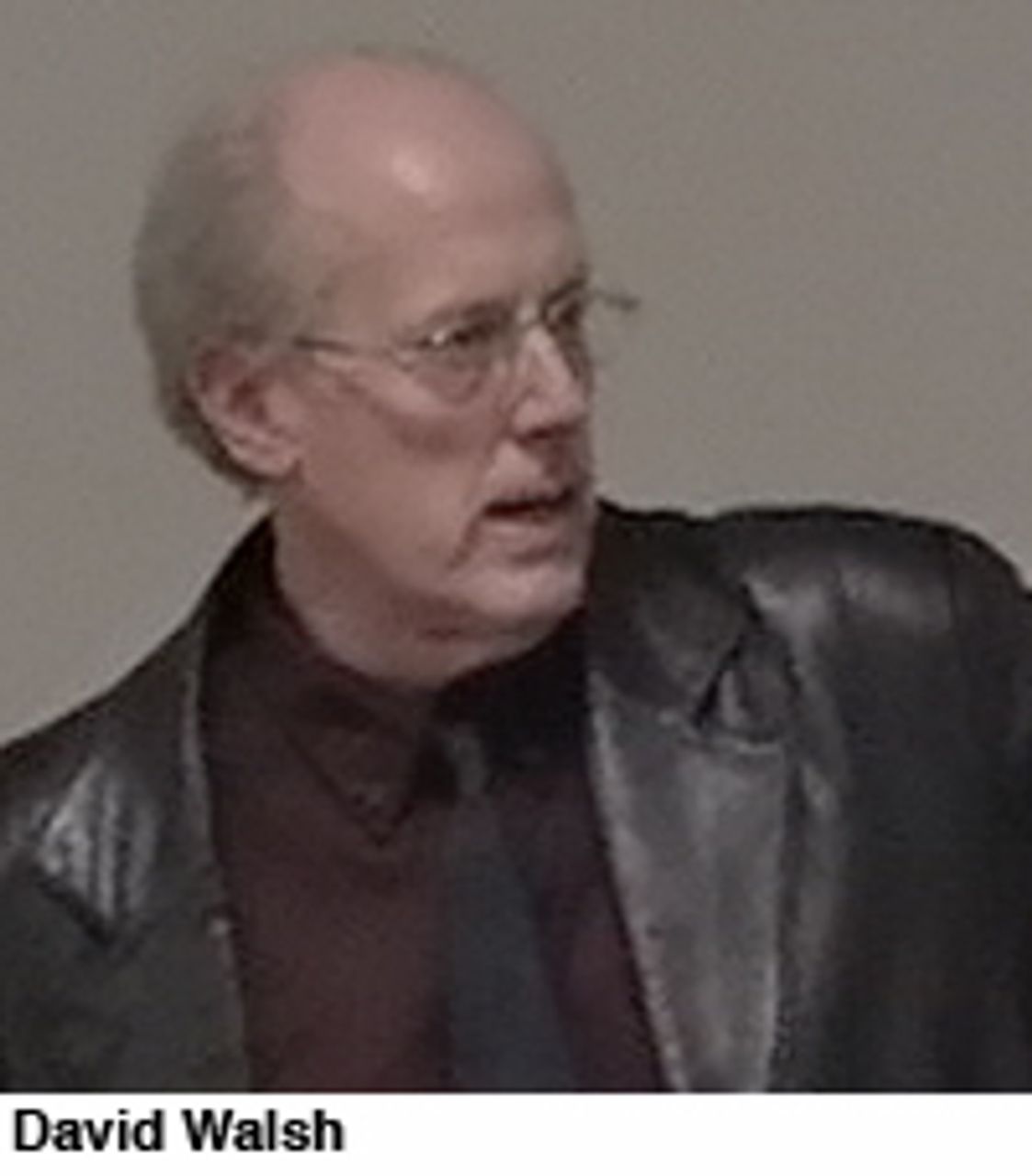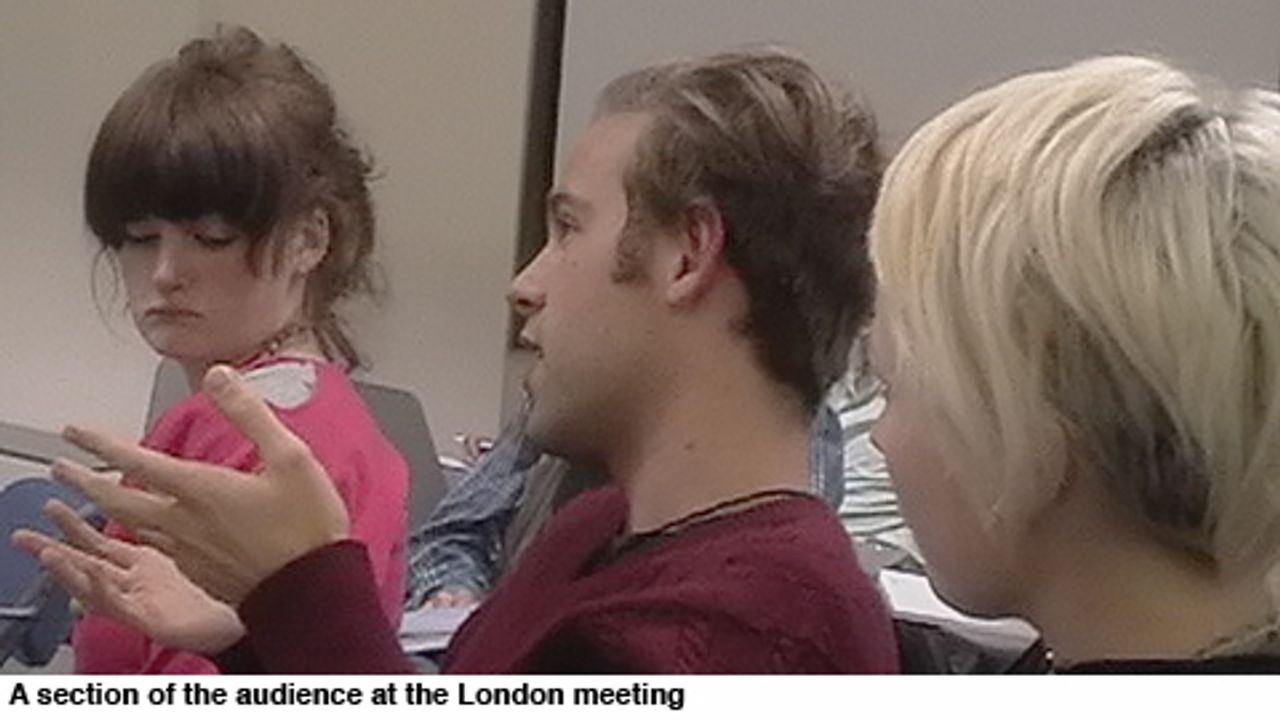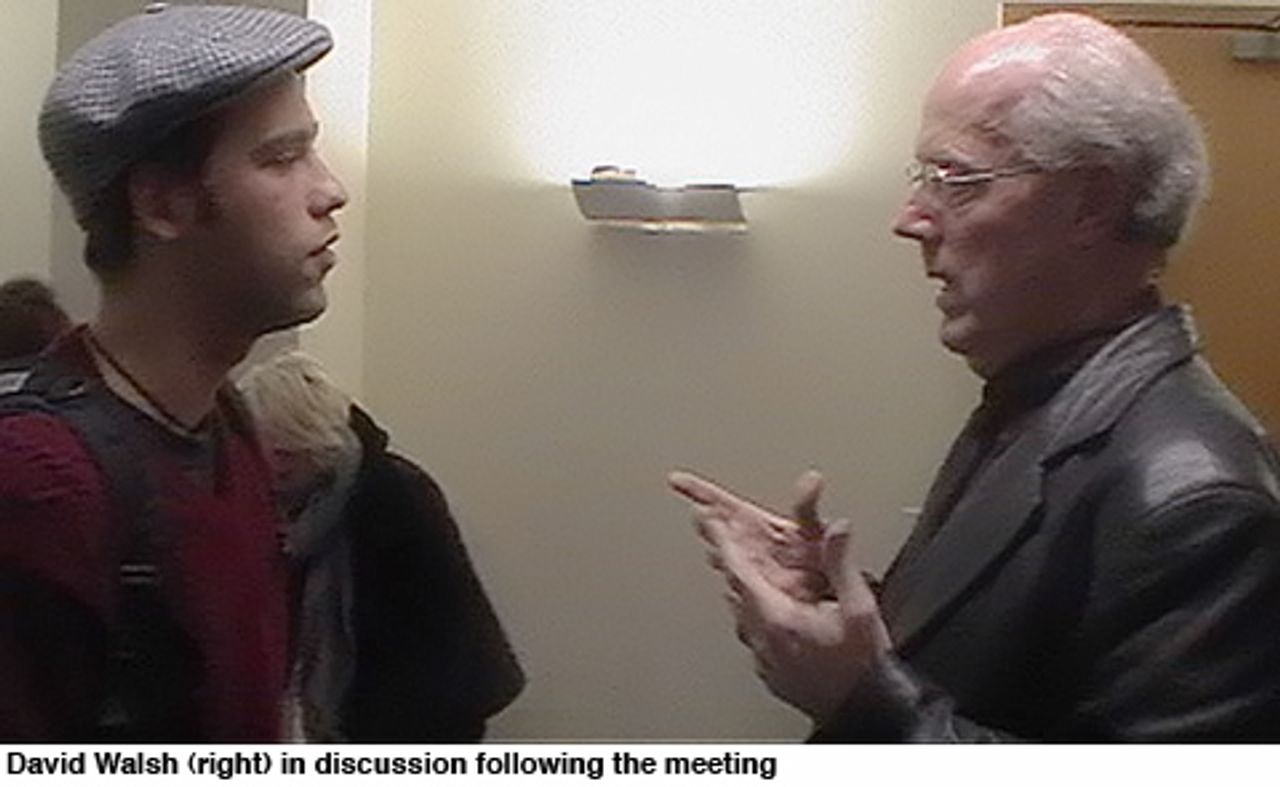An audience of several dozen people took part in a serious and lively discussion after WSWS art editor David Walsh finished his lecture on “Art and Socialism” at the London School of Economics on November 18. (The talk itself will be posted next week.)

Hands shot up from those present wanting to ask questions, but the first came from a young student in the front row who wondered whether all art, including “vacuous art,” art that was “not edifying,” reflects reality and what are examples of good and bad art.
Walsh replied, “Of course, even bad art reflects reality but what endures is art that reveals essential truths about the general human condition. Every trashy ‘reality show’ reflects life, what else could it reflect? But it doesn’t tell us anything important about life.
“Does vacuous art say something?" Walsh asked. “Yes, but not very much, not very much that is helpful ... Art that simply reproduces the surface of life does not constitute a critique ... It has to say something deeply about the conditions that people live in.”

“We are not setting out political prescriptions. We are calling for a real engagement with life,” he added.
Walsh said he found it difficult to name a piece of indelibly great contemporary art, and he also indicated that he didn’t feel that was his job. There are honest artists and occasional flashes of genius, he explained, but one has to ask why artists find it so difficult to sustain their work. He had great sympathy for the artists’ predicament because they are working in a very tough economic and ideological situation.
Walsh elaborated further when asked his view of the old Hollywood film system. Artists like Alfred Hitchcock and, in Britain, Michael Powell, he said, had experienced important events―fascism, depression and war—and came from a deeper culture, and so had those around them. This, he suggested, had found its reflection in works like Vertigo and A Canterbury Tale. He was adamant, however, that the best is yet to come because vast technological and global changes are creating the objective conditions for this to happen.
“Today we fight for the heightening of the social, personal and cultural level of our party and those influenced by us ... that’s why we are holding this meeting,” Walsh said. A considerable section of the population has to raise its cultural level.

“But for a genuine socialist culture social relations need to be transformed,” he continued. Major elements of society have to be put in public hands. Cultural institutions should be run by artists free from poverty and the pressures of the market.
A lively exchange followed when one member of the audience wondered whether “My Bed” by British artist Tracey Emin could be called art. A couple of Courtauld Institute students defended Emin, saying she was a working class artist whose work was a “realist” representation of her personal problems. “Wouldn’t the new movement we need look at such work in a sophisticated way?” one asked.
Walsh suggested that even if, for the sake of argument, one were to grant that Emin possessed elements of courage and commitment, he did not think she engages in a sufficiently complex or interesting way with life or society. “It is an abdication of artistic responsibility,” he said “to present the viewer with a heap of facts and say here you are, you make something of it.”
When another student queried whether this viewpoint was elitist, Walsh insisted that artists had to raise the consciousness and cultural level of the population. “Surely we expect artists to make informed judgments about life, reveal certain truths and not just present us with unmediated reality,” he added.
In reply to another questioner, Walsh warned against any tendency to blame the working class for the culturally degraded conditions of life and, instead, put the responsibility firmly on those in society who have the power and make the decisions. Though the Marxist party resolutely fights against backwardness, Walsh asked (paraphrasing Trevor Griffiths’ The Party), “How do you know that the young worker is satisfied with his life and isn’t thinking about the same things that you are?”
Walsh told a visual arts teacher in the audience that only transformed social relations could overcome the “diabolical” anti-intellectual atmosphere the latter complained about in his art faculty and academia generally. He reminded him of Trotsky’s dictum “Art cannot save itself.” A change in objective circumstances will create a different mood. “You will find that you are not alone.”

Walsh disagreed with the conception that the world, or even an art school, was simply a nightmare. He explained the terrible events of the mid-20th century had led the Frankfurt School’s Theodor Adorno to declare that poetry after Auschwitz was barbaric. For Adorno at a certain point, art was only progressive if it was inaccessible or impenetrable. By the end of the Second World War, a layer of intellectuals had concluded that rational efforts to convince the working class about socialist revolution had failed. Instead irrational, erotic and personal elements had to be emphasised.
“We don’t demonize individuals like Adorno or Herbert Marcuse,” Walsh continued, “We recognize their conclusions arose out of the betrayals and defeats caused by social democracy and Stalinism.”
“Today, the objective situation is different ... it is allowing us to clarify matters and proceed in a different way.
Walsh said he was of the opinion that large numbers of people go to the movies and come away feeling let down and powerless to do anything about it. This vital question was at the centre of the intervention made by the WSWS during last year’s film and television writers strike. “We said to these workers, yes, we support your struggle for better wages and conditions, but you have to tackle the fact that half a dozen corporations determine what the mass of the population hear and see,” Walsh added.
Walsh ended the evening by stressing that an enormous shift was under way. “There is every reason to be encouraged,” he concluded. “The artist must respond in a more complicated, more penetrating, more historically informed and more knowledgeable way.”
